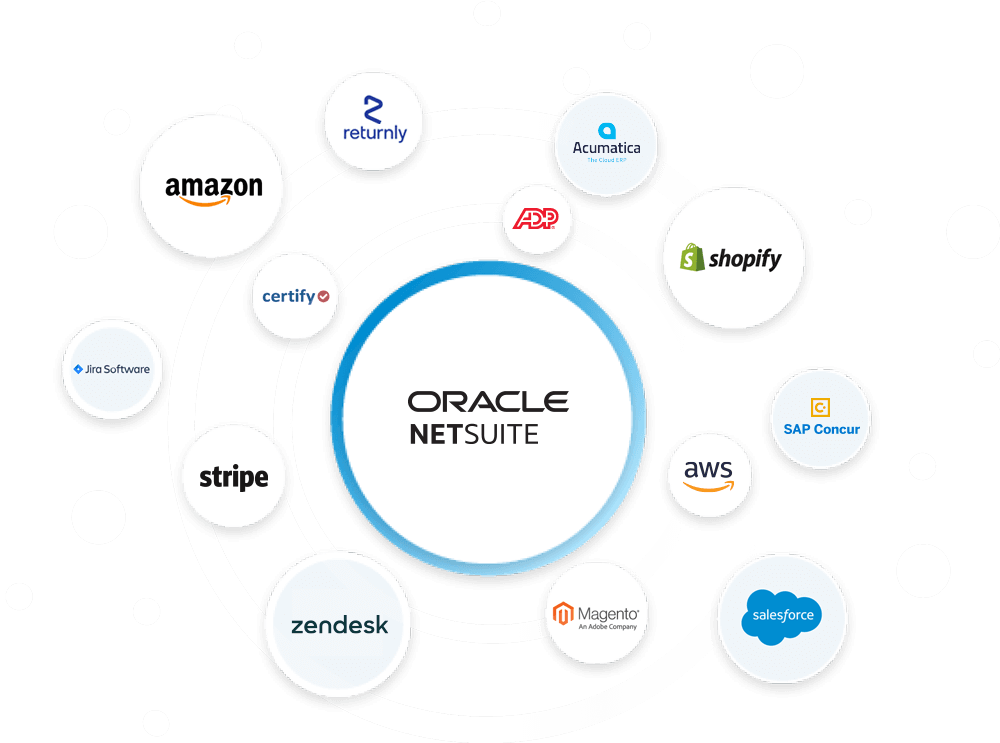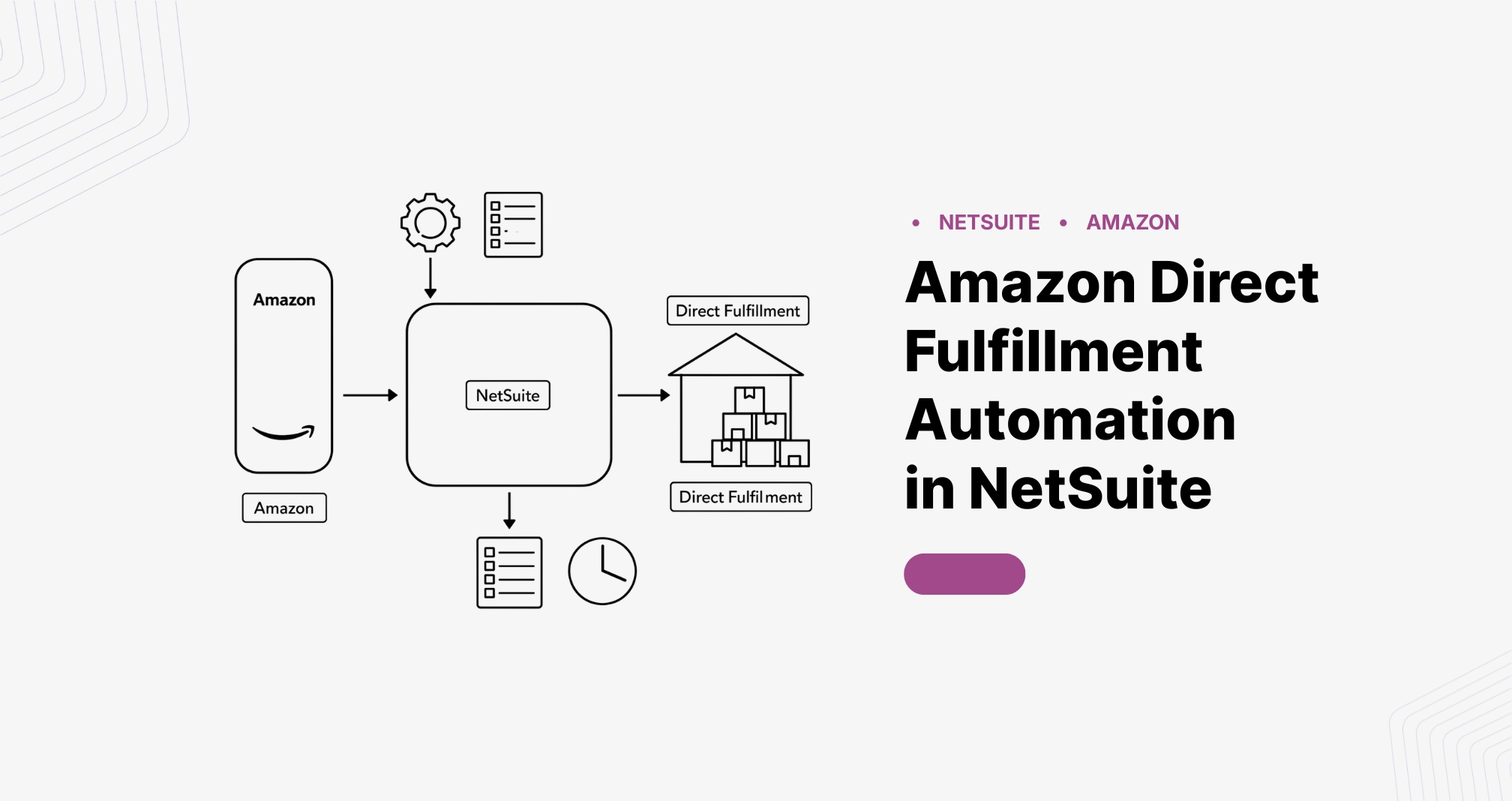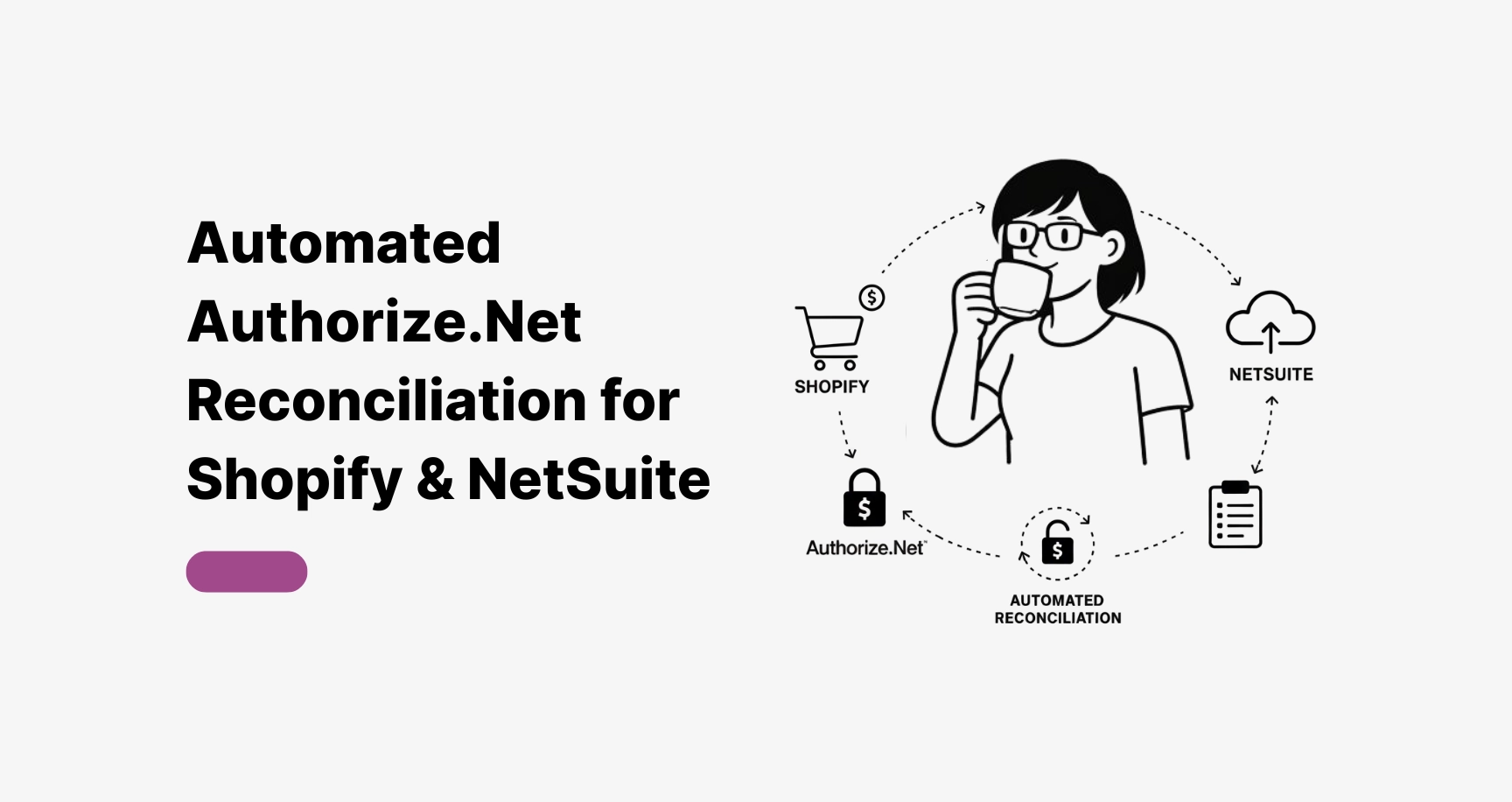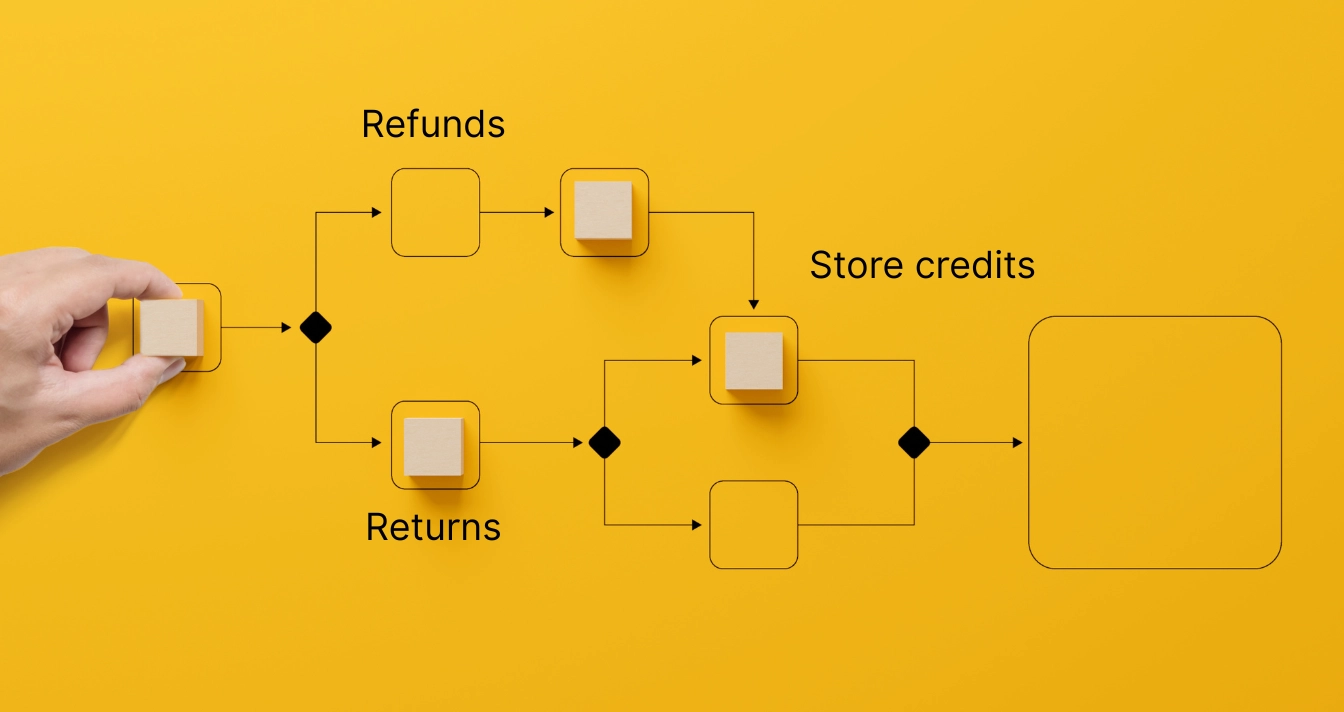Shopify to NetSuite Integration can do a world of good for online stores looking to optimize their processes and enhance their customer experiences. When doing so, among other things, it’s important to choose the right middleware – software that would seamlessly connect the two products. And amongst many integration solutions available, Celigo stands out as a frontrunner, offering unparalleled advantages for synchronizing data between Shopify and NetSuite.
In this guide, our expert team will leverage their experience of NetSuite Shopify integration – and delve into the key features of Celigo Shopify connector, explore its benefits & advantages, and provide best practices for its implementation.
What Are the Key Benefits of Shopify to NetSuite Integration?
The below list is not exhaustive, however, we find the following four benefits to be the most relevant and game changing when it comes to Shopify and NetSuite integration, as witnessed by us across dozens of projects.
Updated Inventory Levels
Accurate inventory management in eCommerce operations directly impacts customer satisfaction and revenue. And Celigo does just that – it ensures real-time synchronization of inventory data between Shopify and NetSuite.
This means that inventory levels are automatically updated across all sales channels whenever a transaction occurs, preventing stockouts and overstock situations. By keeping inventory levels up-to-date, you can optimize your supply chain, reduce fulfillment errors, and maximize sales opportunities.
Order Synchronization on Multiple Channels
NetSuite Shopify integration facilitates the synchronization of orders from Shopify with NetSuite, regardless of the sales channel. This way, it doesn’t matter whether a customer places an order through Shopify, a social media platform, or a physical store, Celigo ensures that the order is processed efficiently in NetSuite.
By centralizing order management, you can eliminate silos, reduce manual errors, and provide a consistent experience to customers across all touchpoints.
Accurate Customer Data Management
The integration enables you to maintain accurate customer data by synchronizing information between the platforms in real-time. This includes customer details, purchase history, preferences, and interactions.
You can gain a holistic view of your customers, which allows you to personalize your marketing efforts, improve retention rates, and drive repeat purchases. For example, you can segment customers based on their purchasing behavior and send targeted promotions or loyalty rewards.
Easy Monitoring and Management
Celigo’s integration provides you with a centralized dashboard for tracking KPIs – you will be able to monitor order status, inventory levels, sales trends, and customer insights in real-time. Additionally, Celigo offers robust reporting and analytics capabilities, providing you with actionable insights into your eCommerce performance and identify areas for improvement.
Key Features of Celigo for Shopify to NetSuite Integration
Celigo leverages a decade of experience helping thousands of customers with integrations to bring the best Shopify NetSuite connector. Comprehensive flows out-of-the-box, high customizability, and intuitive design are only the basics of a good iPaaS solution, and Celigo boasts them all.
When we dig a bit deeper, though, we will find many more:
Automate Order-to-Cash Business Processes
Celigo Shopify NetSuite connector excels in automating the entire order-to-cash cycle. By linking the two platforms, Celigo eliminates manual intervention in processes such as order creation, payment processing, inventory management, and fulfillment.
When a customer places an order on Shopify, Celigo instantly generates a corresponding sales order in NetSuite, triggering automated workflows for inventory allocation and fulfillment. Furthermore, Celigo’s integration ensures real-time updates between systems, enabling businesses to maintain accurate inventory levels and provide timely order status updates to customers.
Reduce Time Spent on Entering Data
Manual data entry is not only time-consuming but also prone to errors – Celigo’s integration solution significantly reduces the time spent on data entry tasks by automating the transfer of information between Shopify and NetSuite.
Customer details, product information, and sales orders are seamlessly synchronized in real-time – this not only saves time but also improves data accuracy, leading to better decision-making and customer satisfaction.
Minimize Errors
Celigo’s integration solution includes robust error-handling mechanisms to minimize inaccuracies and ensure data integrity. Celigo employs data validation rules to detect and prevent errors before they occur, such as verifying customer information and validating pricing data.
On top of that, Celigo provides real-time error monitoring and alerts, allowing businesses to promptly address any issues that do arise.
Dedicated Customer Support
Celigo’s team of experts is committed to helping businesses every step of the way, from initial setup to ongoing support and troubleshooting. Whether businesses encounter technical challenges or need guidance on optimizing their integration workflows, Celigo’s dedicated customer support team is available to provide personalized assistance and expert advice.
Additionally, a network of certified Celigo partners like Hairball can provide stores with the resources and expertise needed to achieve their eCommerce goals and effectively drive growth.
Advantages of Using Celigo For Shopify to Netsuite Integration
In our team’s opinion, Celigo comfortably lands the top spot amongst best middleware for various integration needs, including Shopify and NetSuite. Not only does it seamlessly facilitate the transition of all Shopify customer data into NetSuite, but also it automates all critical processes, makes order fulfillment much more efficient, and, ultimately, is very easy to use.
Easy-to-Use Integration Solution
Celigo stands out for its user-friendly approach to Shopify and NetSuite integration. The platform’s interface is designed with simplicity in mind, ensuring that users of all technical backgrounds can navigate the integration process with relative ease. It matters not if you’re a seasoned eCommerce professional or just starting out in online retail, as Celigo’s intuitive interface and guided setup make the integration process rather straightforward.
From configuring data mappings to setting up automated workflows, it provides step-by-step guidance to ensure a seamless integration experience. In turn, this accelerates the deployment of the integration and also reduces the need for extensive training or technical expertise.
Automated eCommerce Processes
Celigo’s integration solution is great at automating critical processes through real-time synchronization of data between Shopify and NetSuite. It ensures that order information, inventory levels, and customer data are always up-to-date across both platforms.
This way, when a customer places an order on your Shopify store, Celigo automatically updates NetSuite, triggering inventory adjustments and fulfillment processes without any manual intervention. This eliminates the need for manual data entry and reduces the risk of errors, ensuring accurate and efficient order processing.
Timely Order Fulfillment
Celigo also enables businesses to achieve timely order fulfillment – as soon as a customer completes a purchase on your Shopify store, Celigo ensures that the order details are immediately transmitted to NetSuite, where fulfillment processes are initiated without delay.
Whether it’s picking, packing, or shipping orders, Celigo ensures that every step of the fulfillment process is executed promptly and accurately, allowing retailers to meet customer expectations for fast delivery.
Integration of Shopify Customer Data into NetSuite CRM
Celigo’s integration solution also includes the sync of customer data between Shopify and NetSuite CRM. This means that businesses can gain a great view of their customers’ interactions and preferences across both platforms, helping with personalized marketing efforts and targeted promotions.
It could be analyzing purchase history, tracking customer interactions, or segmenting customer data – in any case, it helps stores leverage customer insights effectively and deliver a more personalized experience that resonates with their target audience.
Celigo NetSuite Shopify Integration Best Practices
Now let’s take a look at some practical tips that will help your integration be as smooth as possible:
Establish Clear Data Mapping and Workflows
Begin by identifying the specific data fields that need to be synchronized between the two platforms, such as customer information, product details, and order data. Then, map out the flow of data, outlining how information will move between Shopify and NetSuite at each stage of the eCommerce process.
For instance, when a customer places an order on Shopify, how will that order be processed, fulfilled, and updated in NetSuite? By establishing clear data mapping and workflows, you can ensure seamless communication between systems and minimize errors.
Regularly Monitor Integration Performance
Set up monitoring tools or dashboards to track key metrics such as data synchronization accuracy, processing times, and system uptime. Regularly review these metrics to identify any deviations from expected performance levels and investigate the root causes of any issues that arise.
Conduct Regular Data Quality Checks
Regularly conduct data quality checks to identify and address any discrepancies or errors in the synchronized data between Shopify and NetSuite. This includes verifying the accuracy of customer information, product details, inventory levels, and order status. Implement automated data validation processes to flag any anomalies or inconsistencies and take corrective action promptly.
Leverage Automation for Repetitive Tasks
Identify repetitive tasks, such as order processing, inventory updates, and data entry, and leverage Celigo’s integration capabilities to automate these processes. For example, use workflow automation to automatically route orders from Shopify to NetSuite for processing and fulfillment, eliminating the need for manual intervention.
Train Staff on System Usage and Best Practices
Provide comprehensive training on system usage, best practices, and troubleshooting techniques to ensure that staff members are equipped with the skills they need to succeed. Offer hands-on training sessions, workshops, and access to resources such as user guides and training videos. Encourage ongoing learning and skill development to keep staff members updated on new features and enhancements.
Stay Up-to-Date with Software Updates and Enhancements
Stay informed about software updates through release notes, announcements, and communication from Celigo’s support team. Prioritize the implementation of updates to ensure that your integration solution remains secure, reliable, and optimized for performance. Test new features in a staging environment before deploying them to production to minimize disruption to operations.
Consult with a Team of Integration Experts
Engage with a team of integration experts like Hairball to gain insights and guidance on best practices for implementing and optimizing Celigo’s integration solution. Also seek recommendations from trusted industry peers or consultants with proven experience in eCommerce integration projects – you can leverage their expertise to navigate complex integration challenges and optimize system performance.
How to Decide if Celigo Netsuite Shopify Integration is Right for You
As great as a NetSuite Shopify integration can be, even with Celigo in play, it is not a fit for every business. So let’s weigh up all the necessary pros and cons and make the right decision for your specific case.
Complexity of eCommerce Operations
For: Consider the complexity of your eCommerce operations, including the volume of orders, number of products, and variety of sales channels. Celigo is best-suited for businesses with moderate to high complexity eCommerce operations, where seamless data synchronization between Shopify and NetSuite is essential for efficient order management, inventory tracking, and customer engagement.
Against: If your eCommerce operations are relatively straightforward with low order volumes, a limited product catalog, and minimal need for real-time data synchronization, the complexity of implementing Celigo’s integration solution may outweigh the benefits.
Scalability Requirements
For: Evaluate your scalability requirements and growth projections to determine if Celigo’s integration solution can accommodate your future needs. Celigo offers scalable integration capabilities that can support businesses of all sizes, from small startups to large enterprises. Whether you’re planning to expand your product catalog, enter new markets, or scale your sales channels, Celigo’s integration solution can adapt to your evolving business requirements.
Against: If your business has no immediate plans for scaling operations, expanding into new markets, or adding additional sales channels, the scalability features offered by Celigo’s integration solution may not be necessary.
Integration Flexibility and Customization
For: Assess the level of integration flexibility and customization needed to meet your unique business processes and workflows. Celigo provides extensive customization options – whether you require custom data mappings, workflow configurations, or integration with third-party applications, it will deliver.
Against: If your current eCommerce workflows are already optimized and efficient without the need for real-time sync between Shopify and NetSuite, implementing Celigo may introduce unnecessary overhead.
Cost-Effectiveness and Return on Investment (ROI)
For: Evaluate the cost-effectiveness and potential return on investment (ROI) of implementing Celigo’s integration solution. Consider factors such as upfront implementation costs, ongoing maintenance fees, and the projected benefits of streamlined operations, improved efficiency, and enhanced customer experiences. Conduct a comprehensive cost-benefit analysis to determine if the investment in Celigo’s integration solution aligns with your budget constraints and long-term strategic objectives.
Against: If your budget constraints make it challenging to justify the upfront implementation costs and ongoing maintenance fees associated with Celigo’s integration solution, alternative integration options or manual processes may be more cost-effective in the short term.
Compatibility with Existing Systems and Processes
For: Examine the compatibility of Celigo’s integration solution with your existing systems, processes, and infrastructure. Celigo’s platform seamlessly integrates with NetSuite and Shopify, as well as other third-party applications commonly used in eCommerce operations. Ensure that Celigo’s integration solution aligns with your existing technology stack and business processes.
Against: If your existing systems, processes, or infrastructure are not compatible with Celigo’s solution, the integration may fall flat.
Long-Term Strategic Alignment
For: Consider the long-term strategic alignment of Celigo’s integration solution with your business goals and objectives. Evaluate how Celigo’s platform can support your growth strategy, competitive positioning, and customer engagement initiatives over the long term. Engage in discussions with Celigo’s sales representatives and integration experts like Hairball to gain insights into the scalability, roadmap, and future enhancements of the integration solution.
Against: If your integration needs are temporary or project-specific, investing in Celigo’s integration solution may not be necessary, and alternative integration options or manual processes may suffice for the duration of the project.
How Can Hairball Help You with NetSuite Shopify Integration?
Our team’s experience extends far beyond connectivity. As a seasoned Shopify NetSuite connector, we offer a comprehensive suite that is guaranteed to make a big difference in your culture and your bottom line:
- Integration Strategy Planning: We will craft a roadmap for seamless integration that is designed specifically to meet your business needs. What YOU need is key.
- Customization and Development: We will perform the Celigo Shopify NetSuite integration within the agreed scope and deadlines. No nonsense, no delays.
- Ongoing Support and Optimization: We will continue support and optimization, ensuring the systems continue to meet your needs as your business grows. You won’t be left alone.
- Enhanced Training Programs: We will mentor your team to stay self-sufficient should you wish not to rely on our ongoing services. We value your independence.
Final Thoughts on Using Celigo NetSuite Shopify Integration
In summary, the integration between Celigo, NetSuite, and Shopify offers a transformative solution for businesses seeking to streamline their eCommerce operations and boost efficiency.
Its core strengths are:
- Tailored to eCommerce Needs: Unlike generic integration tools, Celigo’s platform is finely tuned to address the specific nuances of syncing data between Shopify and NetSuite.
- Granular Control Over Data Sync: Celigo provides granular control over how data is synchronized – this allows stores to tailor the integration to their unique workflows and processes.
- Real-Time Data Visibility: Stores can access up-to-date information on inventory levels, order statuses, and customer interactions at any given time.
- Seamless Scalability: Celigo’s platform is designed to scale with businesses of all sizes, from small startups to large enterprises.
To make the most out of your integration, though, make sure that your data mapping is meticulous, your staff is well-trained and your systems are always up to date. And should you experience any problems before, during or after the integration process, don’t hesitate to reach out to a team of professionals like Hairball.



